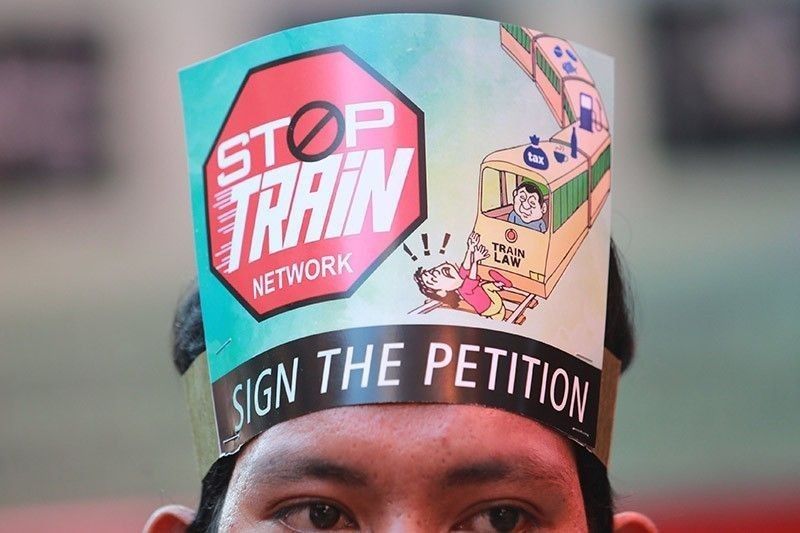Grace Poe, Cynthia Villar regret signing TRAIN law?

MANILA, Philippines — Reelectionist Senators Grace Poe and Cynthia Villar yesterday fell short of admitting that they regretted signing the Tax Reform for Acceleration and Inclusion (TRAIN) law, even as they said it has harmed the Filipino people.
In separate interviews after filing their certificates of candidacy at the Commission on Elections, Poe and Villar noted that the public has not received the benefits that the law was expected to generate.
According to Poe, she supported the law because “the President himself said the government needs (it) to be able to roll out its program.”
Poe claimed she agreed to back the measure because “there are supposed to be social mitigating measures built in” to support poor Filipinos.
Poe added that while revenues generated by the law have already been collected, the measures to benefit the public were not immediately implemented, causing the situation to “worsen.”
“Now they are pushing for TRAIN 2, disguised as ‘Trabaho’ (law). We have to study this thoroughly to make sure that it will not cause us more harm, considering what we are currently going through,” Poe maintained.
Poe is running as an independent in next year’s midterm elections, but she was adopted as a candidate by the Nationalist People’s Coalition.
For her part, Villar said the steep increase in the prices of fuel and commodities was not factored in when the “projections” were made for the law.
“Any country will try to raise taxes because it is used to finance the projects of the government so we can give more to the people. Unfortunately, (TRAIN) was not able to predict that the prices of goods will increase so much,” noted Villar, who is running under the Nacionalista Party.
Villar said she did not expect that traders would “take advantage” of the law to raise their prices.
“It’s lesson learned... We will be guided in the future that when we project inflation, we should consider other things,” Villar added.
Suspension of fuel tax
The government’s move to suspend the scheduled increase of excise taxes on diesel and gasoline next year is expected to benefit the agriculture sector and help contribute to the stabilization of the prices of basic commodities.
Agriculture Secretary Emmanuel Piñol said the suspension of the fuel tax increase is a “big relief” to the farm sector. The tax has been blamed for increasing inflation.
“Fisheries, for one, 60 percent of total expense is on fuel. So this is a big thing because once fuel prices stabilize, prices of goods and other products will also follow,” Piñol told reporters on the sidelines of the World Food Day opening yesterday.
“It is a big relief because agriculture is as much affected by inflation as everybody else.”
But even with the planned suspension, Piñol could not say how fast the effect will be felt by consumers.
Various quarters are calling for the suspension of the existing fuel tax that was slapped at the start of the year, and not just the increase scheduled in January 2019.
The Department of Finance has asked the public to “manage their expectations” since suspending the next round of increases in excise taxes of petroleum products would not necessarily mean prices of commodities would go down significantly.
Middle class now poor
Meanwhile, almost a million middle-class families have now slipped in status and sank to the category of “new poor” among 104 million Filipinos, due to the nine-year record high 6.7 percent inflation in September and the effects of the TRAIN law.
Former House of Representatives deputy speaker Miro Quimbo showed this figure out of the 12.2 million Filipinos who described themselves as poor from the latest survey by Social Weather Stations, with the 48 percent in June rising to 52 percent in the third quarter.
“Food inflation in particular, now at close to 10 percent, has likely dragged more than two million Filipinos to poverty. This is corroborated by the recently reported rise to 52 percent of self-rated poverty, eight percent of whom are classified as new poor,” he explained. – Louise Maureen Simeon, Delon Porcalla, Paolo Romero
- Latest
- Trending































